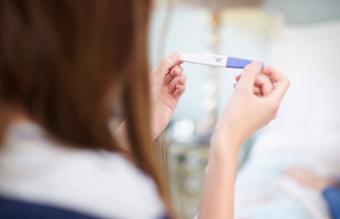
While many people once considered diet's effect on fertility to be one of those old wives' tales that seem to surround pregnancy, new research is proving that there is some truth to the idea that you can improve your chances of conceiving by eating certain foods. Understanding what those foods are and how to incorporate them into your diet may help you become a mother more quickly and easily.
Five Foods to Increase Fertility
Eating certain foods to increase fertility may be a good way to start the process of trying to conceive. Leading a healthy lifestyle, which includes a balanced diet, is important if you want to begin a family. Before starting a new diet program, you should always speak with your doctor regarding your nutritional needs.
Olive Oil, Avocado, and Other Monounsaturated Fats
Trans fats (often identified on food labels as forms of hydrogenated oils) are bad for people's health. In fact, according to a study published in the American Journal of Clinical Nutrition, just two grams per day of trans fats can decrease your fertility by 73%.
However, not all fat is bad. A study published in the journal Obstetrics & Gynecology found that eating monounsaturated fats, such as avocado and olive oils, have now been shown to help in ovulatory fertility problems. Other great foods that are high in monounsaturated fat include olives, nuts, and nut butters.
Beans, Spinach, and Other Vegetable Proteins

There's no denying that protein is an important part of your diet, but where that protein comes from can have an effect on your fertility. According to a study published in the American Journal of Obstetrics & Gynecology, a diet high in animal protein can reduce fertility while a diet high in vegetable protein can make you more fertile.
Beans are a wonderful source of protein. White, kidney, navy, black, lima, and soybeans are protein-rich bean varieties. Other vegetables with protein include chickpeas, lentils, peas, and spinach.
Low-Glycemic Carbohydrates Like Whole Wheat
Eating foods that rank low on the glycemic index (GI) instead of refined sugar and carbs can help with fertility, according to a study published in the journal Endocrine. In the study, many obese women who had problems with ovulation noticed increased fertility by making this dietary change.
Making simple substitutions, like brown rice instead of white rice, or whole grain bread for white bread, can make a big difference in diet. In addition to being part of the "fertility diet" study, the Glycemic Index and GI Database note that low GI foods can help manage symptoms of PCOS, another cause of fertility problems in women.
High Fat Dairy Foods

Drinking milk to increase fertility has been a controversial recommendation, with conflicting findings. However, a study published in the journal Human Reproduction found that a serving or two of full-fat dairy products will help fertility, while low-fat dairy products may cause decreased fertility.
This means it may be wise to choose whole milk, yogurt made with whole milk, cream, and full-fat cheeses. Women who increase their dairy fat should monitor their other food intake to keep the total amount of fat in their diets balanced.
Iron-Rich Foods and Supplements
Consuming iron-rich foods or fortifying a diet with supplements to get to the daily recommended amount of iron can help prevent ovulatory disorder infertility, according to a study published in Obstetrics & Gynecology.
Beans, green vegetables, and lean meats often provide good sources of iron. Supplement with a pill if a doctor recommends it.
Food and Gender
Recent research, including a study published in the Proceedings of the Royal Society for Biological Sciences, found links between the sex of a baby and the mother's diet. Although a baby's gender is determined specifically by the supply of the X and Y chromosome, the report suggests that a mother's body can favor the successful development of a male or female embryo. In summary, those women who ate a high calorie diet and were more likely to have sons.
General Guidelines for Preconception Nutrition
According to the Mayo Clinic, your diet may have an important effect on your fertility. You should take a prenatal vitamin and maintain a healthy weight to maximize your chances of conception. It's also a good idea to keep the following guidelines in mind:
- Consider losing weight if you are overweight. A study published in the journal Human Reproduction found that losing weight improved the results of all types of fertility treatments in women who were overweight.
- Avoid fad diets. Often, these diets can result in nutrient deficiencies that might harm your fertility.
- Go organic. Particularly when purchasing fruit and vegetables, buying organic products can allow would-be parents the peace of mind that the produce is free from pesticides and environmental pollutants, which could be detrimental to conception attempts.
- Maximize fruit and vegetables. There are no limits when it comes to consuming fruit and vegetables. Eating a variety of these sources will increase intake of essential vitamins and minerals.
- Fill out with fiber. Fiber is known to help flush toxins from the body, making it essential when undertaking preconception dietary changes. Fiber has also been linked to reducing gestational diabetes.
Take Care of Yourself
Eating well and taking care of yourself are important for your overall health and your fertility. Taking a good prenatal vitamin, eating a balanced diet, and maintaining a healthy weight may make it easier for you to conceive.







